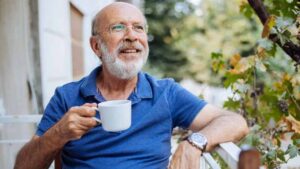
Photo: Getty
A new “super healthy” soup, part of a 900-calorie-per-day regimen, has been recommended by the NHS as a potential solution for reversing type 2 diabetes. At the same time, being hailed as a “game changer,” reports suggest that sticking to this diet may be more difficult compared to other methods. The program involves months of consuming only shakes, soups, and meal-replacement bars, followed by a gradual reintroduction of solid food.
The year-long trial invited thousands of participants, with hundreds successfully completing the program. According to a study published in the Lancet Diabetes & Endocrinology journal, one-third of participants lost nearly two-and-a-half stone (about 35 pounds) and achieved remission of their type 2 diabetes. This diet, now being offered in England, is considered the latest development in NHS-supported weight loss treatments, following the recent introduction of the “skinny jab” Wegovy in specialist clinics. report from The Mirror.
The program, fully funded by the NHS, will not require participants to pay for the meal replacements. Along with the soup and shake regimen, participants will receive personalized diet and exercise sessions, which may be offered either in-person or online. For those able to stick to the plan, the results could be transformative. According to Diabetes UK, patients should have access to a variety of treatment options, including diet changes, medication, or even stomach surgery, depending on what best suits their lifestyle.
One individual who experienced life-changing results is Peter Jackson, a 68-year-old from County Down. Jackson, who worked for over 40 years in sales, described how his weight ballooned to 19-and-a-half stone (over 270 pounds) due to a poor diet and constant travel. told by BBC, In April 2021, after a troubling call from his doctor, he learned he was on the brink of type 2 diabetes. “She told me that I was standing on the precipice of type 2 diabetes, and they had spoken to me about this twice before; this was basically the last call on the matter,” Jackson recalled.
His doctor suggested he join a pilot scheme for diabetes remission at Dundonald Hospital in Belfast. Without hesitation, Jackson agreed. “I didn’t give it a second thought – I wanted to take part,” he said. After joining the program, he managed to lose five stone (70 pounds) and reverse his diabetes, demonstrating the potential success of this approach for those committed to the regimen.


